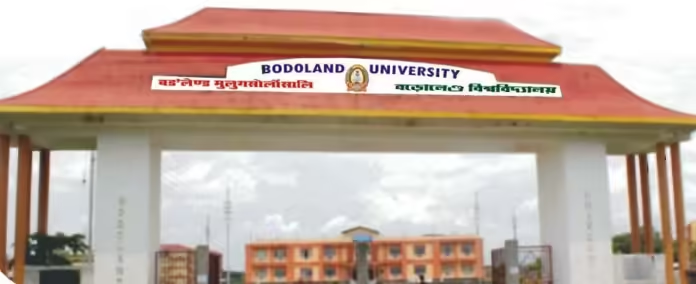Bodoland University, located in Kokrajhar district of Assam, has introduced a pioneering course aimed at empowering non-literate farmers in the region. This initiative marks a crucial milestone in the university’s commitment to inclusive education and rural development.
The newly launched course is tailored to meet the specific needs of farmers who have limited or no formal education. It focuses on practical skills and knowledge essential for agricultural practices, aiming to enhance productivity and sustainability in farming communities across Bodoland.
Dr. Ranjan Basumatary, Vice-Chancellor of Bodoland University, emphasized the course’s significance in bridging educational gaps and empowering marginalized farmers. He highlighted the university’s dedication to promoting practical learning opportunities that directly benefit local communities.
The curriculum includes hands-on training in modern farming techniques, crop management, soil health, and water conservation strategies. These modules are designed to equip non-literate farmers with essential skills to improve their agricultural practices and livelihoods.
Speaking on the occasion of the course launch, Agriculture Minister of Assam, Dr. Himanta Biswa Sarma, commended Bodoland University for its innovative approach towards agricultural education. He stressed the importance of such initiatives in fostering economic growth and sustainability in rural areas.
Local farmers and community leaders have welcomed the initiative, recognizing its potential to bring about positive change in agricultural practices. They expressed optimism that the new course would empower farmers with practical knowledge that can significantly impact their productivity and income levels.
The introduction of this course reflects Bodoland University’s commitment to addressing the diverse educational needs of its community. By focusing on non-literate farmers, the university aims to empower individuals who may have been traditionally excluded from formal education systems.
As the course progresses, Bodoland University plans to collaborate closely with local agricultural experts and organizations to ensure its relevance and effectiveness. This collaborative approach is expected to further enhance the course’s impact and contribute to sustainable agricultural development in the region.
Overall, the innovative course for non-literate farmers at Bodoland University represents a proactive step towards inclusive education and rural empowerment, promising to make a meaningful difference in the lives of farmers and their communities across Assam.




